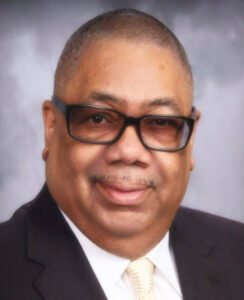
By Rev. Donald L. Perryman, Ph.D.
The Truth Contributor
An insignificant right becomes important when it’s assailed.
– Eleanor Holmes Norton
According to conversations in trusted circles, current Toledo Branch NAACP president, Reverend Willie L. Perryman, Jr., plans to step down before the end of the year.
Perryman, installed in 2021, poured his heart into leading the storied chapter through challenging times, even while managing health issues, the demands of family and extensive pastoral responsibilities at Jerusalem Baptist Church. His decision to step back reflects a pearl of wisdom, prioritizing personal well-being, the needs of his wife and shepherding his spiritual flock. Fortunately, the ultra-busy pastor’s voice and presence will remain active on the NAACP’s executive board, so his insights will continue to shape the organization’s future.
Yet, the leadership transition offers a timely opportunity for renewal, particularly as the NAACP faces immense pressure to redefine its mission and relevance. Darlene Sweeney-Newbern is the likely successor. She brings a wealth of related experience from her work with the Ohio Civil Rights Commission and the National Fair Housing Training Academy. She is well-suited to guide the organization through complex civil rights challenges and foster essential new alliances.
However, remaining impactful in today’s political environment will require more than a change in leadership. The NAACP must also embrace a bolder, more inclusive vision that aligns with the heightened political threats of our present political context, such as Project 2025 – a conservative policy agenda and blueprint developed by the Heritage Foundation for the next Republican administration.
Project 2025’s ultra-conservative aim is to reshape the political landscape by undoing hard-won civil rights advances and protections, scaling back social safety net programs, and dismantling the Department of Education and other key federal agencies. So, the Toledo Branch NAACP must rise to the challenge by adopting strategies that meet the urgency of the times.
While the Branch’s annual Freedom Fund Dinner has been a bright spot – well-organized and effective in raising necessary funds, the Toledo NAACP must tighten its internal operations. To avoid potential sanctions from NAACP National Headquarters in Baltimore, the Branch must bring its operations into full compliance with national bylaws and guidelines. In addition, fiscal responsibilities and obligations must be met on time, and greater active participation must be encouraged at general meetings to develop a more engaged membership. These problems have become chronic and existed well before Perryman’s tenure began.
Yet, the Branch’s most pressing challenge lies in shedding any lingering hesitation tied to “respectability politics” and fully embracing the more inclusive, intersectional activism approach that defines many Black-led contemporary movements. For effective present-day movements, the template involves successfully mobilizing younger generations and marginalized communities by addressing the intersections of race, class, gender, and sexual orientation – an approach the Toledo NAACP must also adopt to remain relevant.
Look for the shift to be more than symbolic change. With Sweeney-Newbern likely to take the helm and Calvin Brown poised as a potential first vice president, the Toledo Branch will potentially align itself with the radical energy of other successful movements and pivot toward more direct action and advocacy.
So, I expect a strategic overhaul for the organization that invites grassroots participation, welcomes diverse voices, and addresses systemic oppression head-on.
Without this transformation, the NAACP risks becoming like other once-prominent organizations—alive in name only but diminished to a relic of the past.
Reverend Perryman’s departure represents a “job well done!” and marks the end of a significant era defined by his sacrificial and servant-hearted leadership. At the same time, it also opens the door for new leadership to take the organization in a bold direction.
In any event, Sweeney-Newbern has a crucial opportunity to reinvigorate the NAACP’s mission by moving beyond the limits of its “middle-class only” tradition and embracing a bold, forward-thinking agenda of modern activism that confronts the evolving threats to civil rights.
Indeed, the future demands a redefined Toledo NAACP that is fearless, inclusive, and relentless in the pursuit of justice – one capable of building alliances across race, gender, and class, and ready to resist policies that threaten hard-won civil rights.
Contact Rev. Donald Perryman, PhD, at drdlperryman@enterofhopebaptist.org

